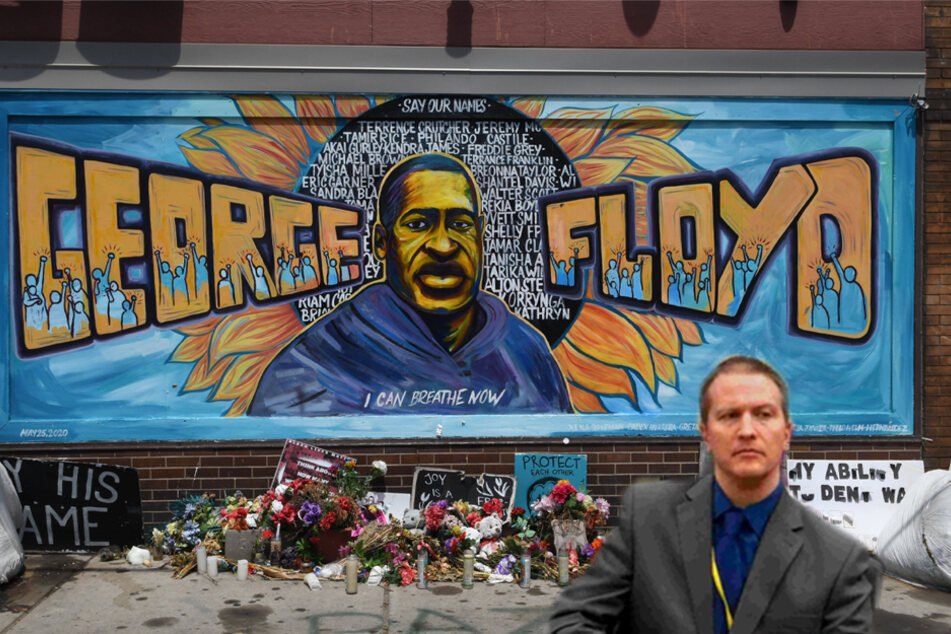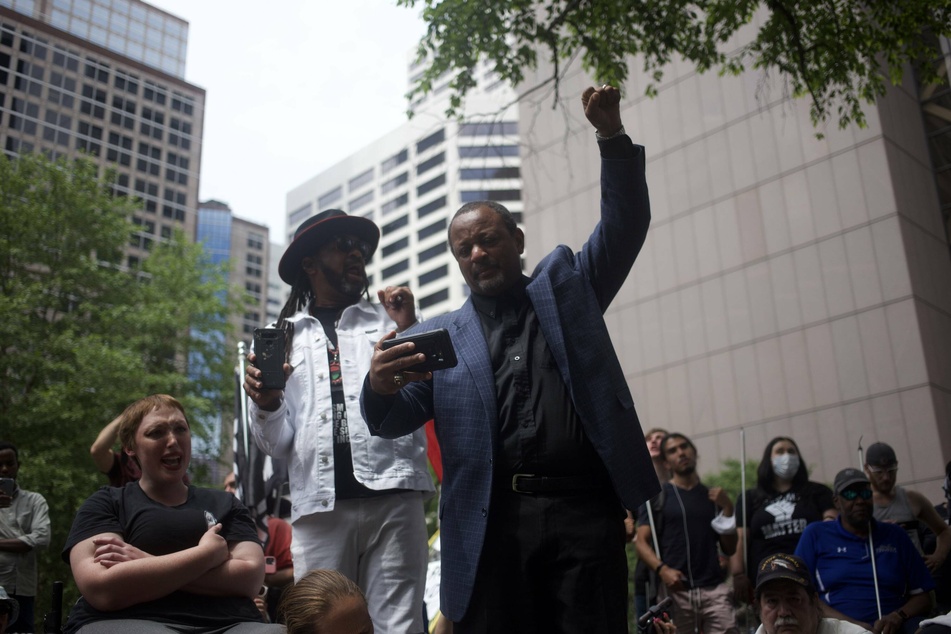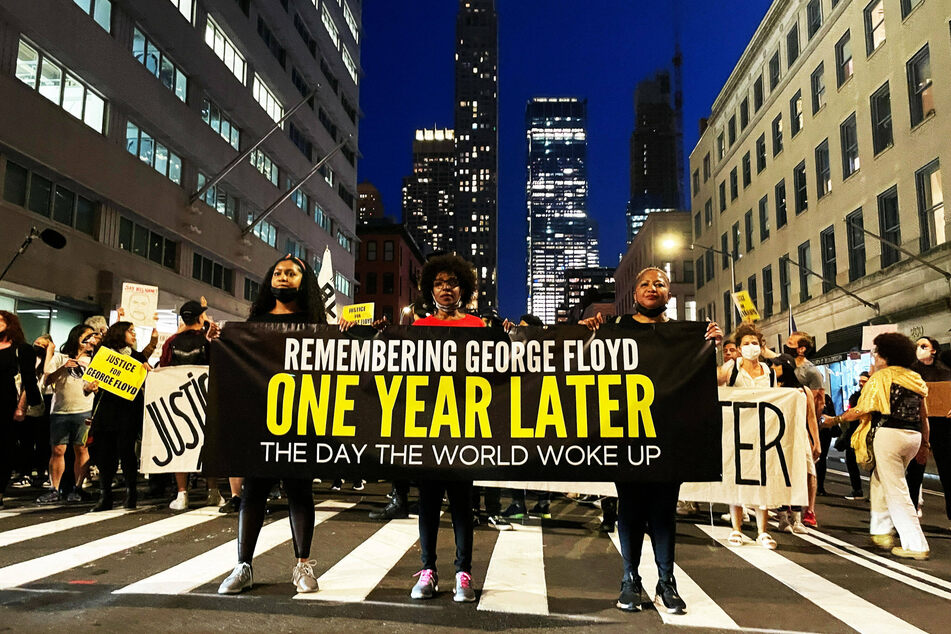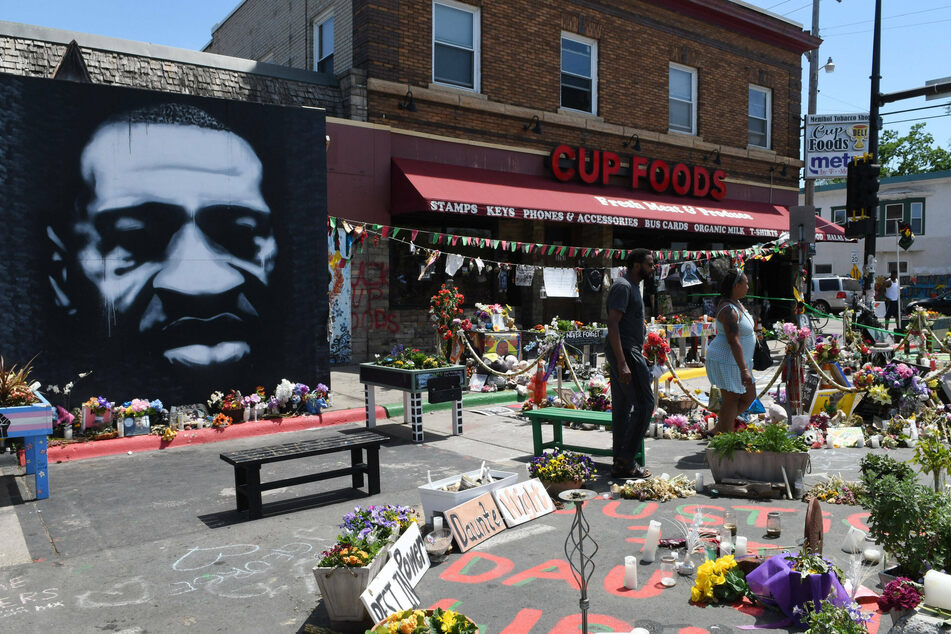Derek Chauvin sentenced to 22 years in prison and awaits federal trial
Minneapolis, Minnesota – Former Minneapolis police officer Derek Chauvin was sentenced on Friday to 270 months in prison for the murder of George Floyd, but his legal battles don't end there.

In April, it took a single day of deliberation by a jury to find Derek Chauvin guilty of murder in the death of George Floyd.
After two months of failed attempts by Chauvin's attorney Eric Nelson to get a retrial and minimize sentencing, Judge Peter A. Cahill sentenced Chauvin on Friday to 270 months, or 22 years, in prison.
The judge granted Chauvin a 150-day deduction from his sentence for the time he has already served, and as required by Minnesota law, informed Chauvin that he'll have to register as a predatory offender.
Chauvin will also never be allowed to own or possess a firearm for the rest of his life.
Before reading the sentence, Judge Cahill said it was "based on abuse of position of trust and authority, and the particular cruelty shown to George Floyd."
In May 2020, Chauvin responded to a call regarding the use of a counterfeit $20 bill at Cup Foods and forced Floyd to the ground, holding him down with his knee on Floyd's neck for nine minutes and 29 seconds, while Floyd pleaded, "I can't breathe" until the life left his body.
His death sparked a wave of Black Lives Matter protests and marches across the globe.
The judge noted his ruling on Friday was not based on emotion, or public sympathy, but made sure to "acknowledge and recognize the pain of the Floyd family."
Though his remarks were brief, Judge Cahill said there was a 22-page memorandum attached to the sentencing that explains how the ruling was determined.
The Floyd family made victim impact statements

The sentencing hearing began with victim impact statements, and Floyd's 7-year-old daughter Gianna was the first one up.
She gave her remarks via video as the court asked what she missed most about her dad.
"I ask about him all the time", Gianna said. "I was asking how my daddy got hurt."
She continued, "I want to play with him, have fun, go on a plane ride."
When asked what she'd tell her father if he was still here today, the young girl responded, "It would be that I miss you and I love you."
Next was Brandon Williams, Floyd's nephew, who wasted no time getting to the point.
"Chauvin killed George. Not only did he kill George, but he also displayed a total lack of considering for human life as he did so," Williams said.
He asked the court to bear with him as he attempted to verbalize the right words, something he said he felt was impossible.
"The full extent of our pain and trauma will never be seen with the naked eye." Williams continued, "Our family is forever broken, and one thing we cannot get back is George Floyd."
Following Williams was Terrance Floyd, one of Floyd's brothers.
As the young man struggled to read his notes, Chauvin looked on with concern, squinting his face while listening intently to the grievances of Floyd's family.
"I wanted to know from the man himself why? What were you thinking? What was going through your head when you had your knee on my brother's neck?" Terrance Floyd asked.
Last to speak on Floyd's behalf was another of his brothers, Philonise Floyd.
"For an entire year, I had to relive George being tortured to death, every hour of the day, only taking naps and not knowing what a good night's sleep is anymore." Philonise went on to recount the frequent nightmares he has of hearing Floyd beg for his life and crying out for their mother.
He ended his remarks by saying, "My niece Gianna, she needs closure."
Each one of Floyd's family members asked Judge Cahill to give Chauvin the maximum sentence.
The prosecution and defense stated their desired sentencing

The state prosecutor Matthew Frank started his remarks by thanking the Minneapolis police officers who testified during Chauvin's trial on the state's behalf, saying they "stuck to their oath and commitment as police officers to speak openly and honestly about policing and the training" involved.
According to Frank, there were aggravating factors, such as abuse of position of trust and authority, that needed to be taken into account for sentencing.
He argued that Floyd's "needs were dismissed by someone who has taken custody, but not care," making the act significantly more vile than a "typical" second-degree murder conviction.
Ultimately, the prosecution asked for a 360-month sentence: "It's time for the criminal justice system to say, 'We hear you.'"
Things heated up when Chauvin's mother, Caroline Pawlenty, took the stand to defend her son's character to the court with hopes of reducing his sentence.
"It's been difficult for me to hear what the media, public, and prosecution team believe Derek to be," Pawlenty began.
"I can tell you that is far from the truth. My son's identity has also been reduced to that of a racist. I want this court to know that none of these things are true, and that my son is a good man," she said.
She shared that while she hasn't spoken publicly about her son's case, she's supported him "100%" throughout the process.
"Derek has played over and over in his head the events of that day. I've seen the toll it's taken on him. I believe a lengthy sentence will not serve Derek well," adding that sentencing him to prison would also mean sentencing her.
The defendant's mother went on to say that when he is in jail, she won't be able to see her son or give him a "special hug," and finished by telling the court she and Chauvin's father likely won't be alive by the time he's released – things the Floyd family will also never get the chance to do with George for the remainder of their lives.
Then, the unexpected happened. Prior to a recess before the sentencing was announced, Chauvin made a brief statement: "I want to give my condolences to the Floyd Family."
He finished his remarks by saying that while he couldn't make a formal statement because of his impending federal trial, he believes more information will come out that might give them peace of mind.
Many Twitter users expressed their disappointment with Chauvin's sentencing
Chauvin's sentencing is just the tip of the iceberg

Just hours before Friday's sentencing, Nelson filed a 64-page motion for a retrial, which was swiftly rejected by Judge Peter A. Cahill in a blunt, two-page ruling.
According to Minnesota law, Chauvin only faced sentencing for his most serious charge: second-degree murder.
Following the guilty verdict of Chauvin's trial in April, Judge Cahill ordered the former officer's bond to be revoked, and placed Chauvin in the custody of the county sheriff.
Reactions rang out after the sentencing decision on Friday by groups gathered at the scene of the crime in front of Cup Foods, which has since been renamed George Floyd Square. It now serves as a memorial for a life taken too soon, and on Friday, became a fitting locale for the somber celebration of justice being served.
Although Chauvin's state-level trial and sentencing has wrapped, he still faces a federal trial regarding whether he infringed on Floyd's civil rights with the use of excessive force by kneeling on his neck.
Three other former officers who were at the scene, Thomas Lane, J. Alexander Kueng, and Tou Thao, are awaiting federal trial for their involvement as well.
Chauvin is the first white police officer to be convicted for the murder of a Black person.
Cover photo: Collage: IMAGO / ZUMA Wire
